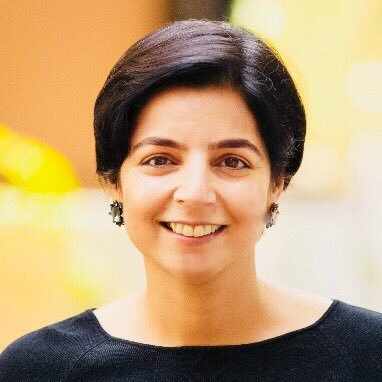
New Delhi: State run Convergence Energy Services Ltd (CESL) has said it is targeting procuring and selling at least 3 lakh electric three wheelers by 2023 adding that it may need to raise capital upto $ 1.5 billion over the next few years for its electric vehicle dreams alone.
The company created a flutter in the market last week when it floated a tender for 1 lakh electric three wheelers but its MD and CEO Mahua Acharya said it was only the first of three similar sized tenders that it is planning to float by 2023.
“The demand has been very strong. This tender is only one of the three that we would be conducting as we have still not addressed a number of sectors where we see significant demand,” Acharya told ETAuto. “The trend is that cities want garbage collection vans to be electric as they are cheaper to operate. So we are expecting the next tender to be largely for garbage collection itself.”
It is not just three wheelers alone. CESL is also eyeing the two wheeler segment where it wants all government employees to have the option of either buying a new electric two wheeler or replacing their existing petrol powered vehicle with one. They have received strong feedback for that too in states like Andhra Pradesh, Kerala and Goa. Further, it has also embarked on a grand challenge for allocation of electric buses in the 9 main metros of the country. The challenge it faces is of funding.
The trend is that cities want garbage collection vans to be electric as they are cheaper to operate. So we are expecting the next tender to be largely for garbage collection itself.Mahua Acharya, MD and CEO, CESL
“Our funding needs are significant. If you look at our current tender of 1 lakh electric three wheelers, that itself is about Rs 3000 crore. Assuming that half of them are leased out by us to entities, that is Rs 1500 crore,” she said. “It is clear that we are going to need funding. We are in discussions with our parent company, but also in the market where an investment banker is helping us, looking at NBFCs and at every option. For two and three wheelers alone, we will need about $ 1 billion in funding. If we add buses to the mix, then that goes up to about $ 1.5 billion.”CESL is following the successful template of demand aggregation devised by its parent firm EESL. In the case of LED bulbs, EESL struck gold with multiple big ticket global tenders, which brought down prices from Rs 310 in 2014 to under Rs 50 of today. It tried to do the same in electric four wheelers in 2018 with a tender of 10,000 units but that plan bombed spectacularly. Acharya does not want to make the same mistake and hence, does not expect a steep reduction in prices. Infact, she is wary of it.
“There maybe some reduction as some company may bid aggressively but I do not expect it to bring down prices by more than 10-15 percent. We do not want to compromise on quality and hence the focus is not on price,” she said. “Infact, I will be worried if the prices are too low as it would mean the quality is being compromised. I do not want that. The lessons we learnt from EESL was that we have to be careful with the size of the tender. Which is why we were quite conservative this time.”
Besides the need for funding, there are a couple of other roadblocks that CESL is facing. One of them is a potential low capacity in the industry which is due to lack of players. In three wheelers for example, the largest in the business–Bajaj Auto, has still not entered the electric segment leaving the field open for only three other players–Mahindra, Kinetic and Piaggio. Similarly in two wheelers while there are many small players, the ones with any kind of scale are a handful. Companies like Hero MotoCorp and Honda are yet to launch their EVs while Bajaj and TVS have only one product each.
For two and three wheelers alone, we will need about $ 1 billion in funding. If we add buses to the mix, then that goes up to about $ 1.5 billion.Mahua Acharya, MD and CEO, CESL
“I am actually worried that there are not many players around in the market. The biggest player in the market (Bajaj Auto for three wheelers), does not even have a product (e-3wheeler),” Acharya said. “I am hoping that the scale of our tender gives the signal for more players to enter this market. We are just getting started. I want more companies to step up as it would not be a flourishing market if production capacity of these companies do not keep pace with what the market needs.”
Another stumbling block could be charging, something that had previously scuppered parent EESL’s electric dreams as well. CESL wants charging infrastructure to develop fast so that two and three wheeler owners get a charging point every 4 kilometers but Acharya admits it needs some push.
“Charging is part and parcel of the project and we are not looking at it separately. It is very clear that if we do not have enough chargers,” she said. “We have faced so many obstacles that we think charging needs a little bit of a push. We also want to look at swapping because it changes the total cost of ownership significantly. Infact in our current tender, most of the three wheelers are for swappable batteries.”
















